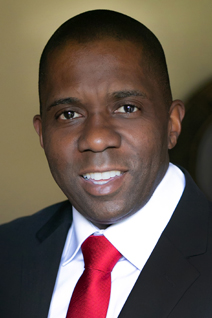James Scott, Albertus Magnus College – Penetrating the Blue Wall of Silence
 People in stressful jobs often don’t get the mental health help they need.
People in stressful jobs often don’t get the mental health help they need.
James Scott, assistant professor in the department of criminal justice at Albertus Magnus College, examines one example.
Dr. James Scott began his law enforcement career with a stint as a New York City (NYC) Correction Officer. Subsequently, transitioning to the Connecticut State Police. After 21 years of policing, Dr. Scott retired and assumed a faculty position at Albertus Magnus College in New Haven, CT. Dr. Scott earned a Doctorate in Criminal Justice from Saint Leo University, and he is a military veteran.
Penetrating the Blue Wall of Silence
Unmanaged stress is one of the greatest threats to police officers. Cops grapple with organizational and operational challenges daily. Examples of organizational stressors include: rotating shifts, working long hours, and navigating a rigid bureaucracy. In contrast, operational stressors include: horrific traffic accidents, domestic violence, and encountering combative suspects.
Grappling with these workplace challenges can strain a police officer’s mental and physical health. Studies show that conditions such as PTSD and depression are common among police officers. In fact, between 2017 and 2019, suicide was the leading cause of death among police officers.
Aside from the workplace stressors already mentioned, in 2020, police officers were confronted with two new hazards: the COVID-19 pandemic and the fallout after the police-involved murder of George Floyd. Despite the known dangers associated with unmanaged stress, most police officers do not seek assistance because of the stigma attached to mental health.
This study surveyed active and retired American police officers to assess whether a officers’ education or physical fitness, had an impact on their stigmatization level. The results were like other studies in that, stigma prevents most police officers from seeking mental health assistance and an officers’ education and physical fitness was not related to reduced stigmatization levels.
Traditional police culture views asking for help as a perceived sign of weakness. Therefore, law enforcement agencies must explore things such as mandatory mental health checkups as a way to penetrate the blue wall of silence.



As a retired DOC officer, I thank Dr Scott for shedding light on this issue. It is the secret monster that kills. More research and resolve is welcomed.